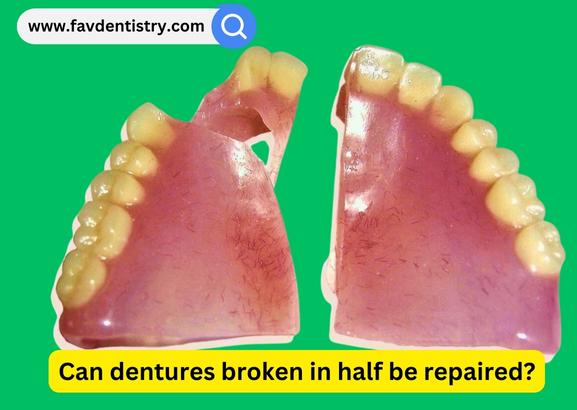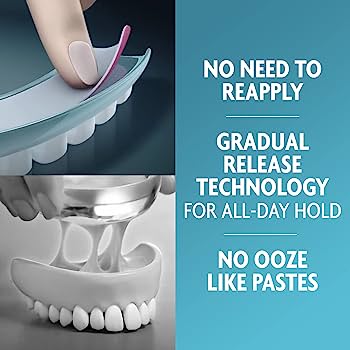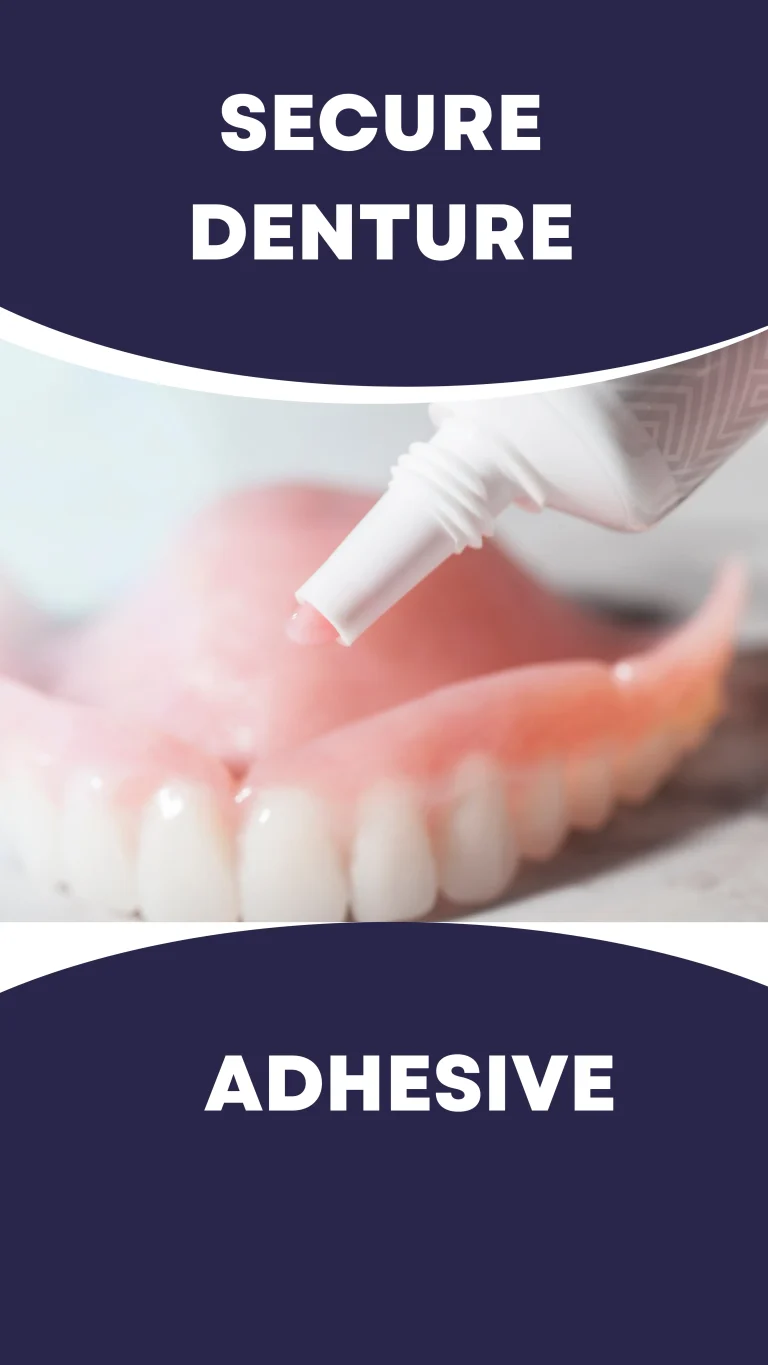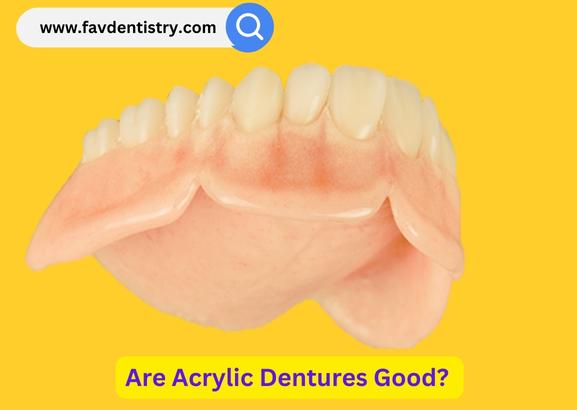Last Updated on 3 weeks by DR. ALBIN SIPES
Dentures typically have a total of 32 teeth. Dentures, or false teeth, are removable prosthetic devices that replace missing teeth and restore oral functionality and aesthetics.
While a complete set of dentures comprises 32 teeth, it is also possible to have dentures for specific mouth sections, such as partial dentures that replace only a few missing teeth.
Understanding Dentures And Their Composition
Dentures are a standard solution for those who have lost some or all of their natural teeth. These artificial teeth are designed to restore the function and appearance of a healthy smile. But have you ever wondered how many teeth dentures have?
We will explore the composition of dentures and the different types available. So, let’s dive in and better understand dentures and their composition.
Materials Used In Dentures
- Acrylic: The base of most dentures is usually made of acrylic resin. This material is lightweight, durable, and can be customized to match the color of the patient’s gums.
- Metal: In some cases, metal frameworks are used as the base for dentures, especially partial ones. These frameworks are made of a combination of metal alloys, such as cobalt-chromium or titanium. Metal-based dentures provide extra strength and stability and are often used when patients require a more secure fit.
- Porcelain: The false teeth in dentures are typically made of acrylic resin and porcelain. Porcelain teeth closely resemble natural teeth in color, shape, and texture. They are known for their durability and ability to withstand wear and tear.
- Flexible: Another alternative is flexible dentures made of thermoplastic materials. These dentures offer a more comfortable fit and are less likely to cause irritation or sore spots. They can flex and adapt to the movement of the mouth, providing enhanced comfort for the wearer.
Understanding the different types of dentures and the materials used in their composition is crucial for anyone considering dentures as a teeth replacement option. Whether you need complete dentures to restore your smile or partial dentures to fill in the gaps, discussing your options with a dental professional will help you determine the best solution for your specific needs.
Remember, dentures can give you a functional and aesthetically pleasing smile, giving you the confidence to eat, speak, and live life to the fullest.
Fact 1: Full Set Dentures Have 32 Teeth
Dentures are a standard dental solution for individuals missing a complete set of teeth. If you’ve ever wondered about the specifics of dentures, you may be curious to know how many teeth they typically have. You’ll be surprised to learn that a complete set of dentures consists of 32 teeth, just like natural teeth.
In this blog post, we’ll delve into the structure and placement of teeth in full-set dentures to provide you with a better understanding. So, let’s dive right in!
Structure And Placement Of Teeth In Full Set Dentures
- Dentures are custom-made dental appliances that replace a person’s missing teeth and surrounding tissues. They consist of artificial teeth and a gum-colored base that imitates the appearance of natural gums.
- A full set of complete dentures comprises 32 teeth, just like the number of teeth found in a natural adult dentition.
- These artificial teeth are made from acrylic resin or porcelain materials, resembling natural teeth’ shape, color, and size to create a natural-looking smile.
- Dentists carefully place and arrange the artificial teeth in the gum-colored base to mimic the alignment and spacing of natural teeth. This placement ensures optimal function and aesthetics for the dentures.
- Placing the artificial teeth in full-set dentures is done strategically, considering factors such as facial structure, bite alignment, and speech function. This ensures that the dentures fit comfortably and function properly.
- , the gum-colored base of the dentures is custom-made to fit snugly over the gums, providing stability and preventing slippage during use To ensure a secure fit.
- Dentures play a crucial role in restoring the ability to eat, speak, and smile confidently for individuals missing a complete set of teeth.
- It’s worth noting that dentures require proper care and maintenance to ensure their longevity and effectiveness. Regular cleaning, soaking, and regular dental check-ups are essential to keep your dentures in excellent condition.
- If you consider dentures as a tooth replacement option, consult your dentist. They will guide you through the process, addressing any concerns or questions.
Now that you better understand the structure and placement of teeth in full-set dentures, you can decide if dentures are the right choice. Remember, proper dental care and regular check-ups are crucial for maintaining the health and functionality of your dentures.
Fact 2: Partial Dentures Can Have Variable Number Of Teeth
Partial dentures are a popular option for people who have lost some natural teeth. These dentures can help fill the gaps and restore functionality to the mouth. One interesting fact about partial dentures is that they can have various teeth.
Let’s explore this further.
Purpose And Function Of Partial Dentures:
- Partial dentures are designed to replace multiple missing teeth.
- They help restore the ability to chew, speak, and confidently smile.
- These dentures are removable, which allows for easy cleaning and maintenance.
Partial dentures come in different types, including removable and fixed options. The specific type and number of teeth on the denture will depend on the individual’s tooth loss and the desired outcome of treatment.
Customization Of Partial Dentures Based On Tooth Loss:
- The number of teeth on the partial denture can vary depending on how many natural teeth are missing.
- Dentists work closely with their patients to determine the best design for their needs.
- The goal is to achieve a harmonious balance between natural and prosthetic teeth on the denture.
When designing the partial denture, the dentist considers the patient’s bite alignment, oral health, and aesthetics. The denture must fit comfortably and securely in the patient’s mouth, allowing for proper function and a natural appearance.
Depending on the individual’s tooth loss, partial dentures can have a variable number of teeth. Dentists customize these dentures to ensure optimal functionality and seamless integration with the patient’s natural teeth. Whether you have lost a few teeth or several, partial dentures can provide a reliable and aesthetically pleasing solution.
Fact 3: Denture Teeth Can Be Made From Different Materials
Dentures, or false teeth, are commonly used to replace missing teeth and restore a person’s smile. But have you ever wondered how many teeth dentures have? Well, the answer may surprise you. Denture teeth can be made from different materials, each with unique characteristics and benefits.
We’ll explore three popular types of denture teeth: porcelain teeth, acrylic teeth, and composite resin teeth. Let’s dive in to learn more about each of these options.
Porcelain Teeth
- Porcelain teeth are known for their natural appearance and durability.
- They closely resemble natural teeth in color and texture, making them an attractive choice for many denture wearers.
- Porcelain teeth are stain-resistant, making them ideal for those who enjoy consuming coffee, tea, or other staining substances.
- However, they can be brittle and more prone to chipping or breakage than other materials.
Acrylic Teeth
- Acrylic teeth are the most commonly used type of denture teeth.
- They are cost-effective and easy to customize to fit an individual’s mouth.
- Acrylic teeth are lightweight and less likely to cause discomfort.
- However, they may wear down faster and be more susceptible to stains than other materials.
Composite Resin Teeth
- Composite resin teeth are a versatile option for denture wearers.
- They are made from a combination of acrylic and composite resin materials.
- These teeth can be color-matched to the surrounding natural teeth, providing a seamless and natural-looking smile.
- Composite resin teeth are more durable and less likely to chip or break than porcelain teeth.
As you can see, denture teeth can be made from different materials, each with advantages and considerations. Your dentist will work with you to determine the best type of denture teeth based on your needs and preferences.
The Importance Of Proper Denture Fit
Ill-fitting dentures can have a significant impact on oral health. Ensuring your dentures fit correctly is crucial to avoid complications and discomfort. From gum irritation to difficulties in speaking and chewing, an improper denture fit can pose several challenges.
Let’s explore the impact of an ill-fitting denture on your oral health.
Impact Of An Ill-Fitting Denture On Oral Health
- Gum irritation: Ill-fitting dentures can rub against the gums, leading to soreness, redness, and even ulcers. This discomfort can make it difficult to wear dentures for extended periods.
- Difficulty chewing: A loose denture can slide or move, making it challenging to bite and chew food properly. This may lead to nutritional deficiencies and impact overall digestion.
- Speaking troubles: An ill-fitting denture can affect your ability to pronounce certain sounds and words correctly. It may cause slurred speech or noticeable changes in your speech pattern.
- Bone loss: When dentures do not fit properly, they may not adequately support the underlying jawbone, leading to bone loss over time. This can affect the overall structure of your face and cause changes in your facial appearance.
- Digestive issues: Improperly chewed food due to poorly fitted dentures can cause digestive problems such as indigestion, bloating, and discomfort. Inadequate chewing may also impact saliva production, which plays a crucial role in digestion.
Dentures that fit well are crucial to maintaining good oral health and overall well-being. Suppose you experience any discomfort or notice changes in the fit of your dentures. In that case, it is essential to seek professional dental assistance to ensure a proper fit and avoid potential complications.
Fact 4: Dentures Can Be Removable Or Fixed
Dentures are a popular solution for individuals with missing teeth, offering both functionality and aesthetics. When it comes to dentures, they can be categorized into two main types: removable and fixed dentures. Each class has pros and cons, depending on the specific needs and preferences of the wearer.
Let’s delve into the advantages and disadvantages of both options.
Pros And Cons Of Removable Dentures:
Removable or traditional dentures can be quickly taken out and put back in by the wearer. Here are the key points to consider:
- Easy maintenance: Removable dentures can be cleaned and maintained outside the mouth, allowing for thorough cleaning.
- Cost-effective option: Removable dentures are generally more affordable than fixed dentures, making them an accessible choice for many individuals.
- Adjustability: Removable dentures can be adjusted or replaced if there are any changes in the wearer’s oral structure over time.
- Discomfort and stability issues: Some wearers may experience discomfort and stability issues, as removable dentures rely on adhesive creams or natural suction to stay in place.
- Speech and chewing challenges: Wearers may find it challenging to adapt to the feel of removable dentures, affecting their speech and ability to chew certain foods until they become accustomed to the new dental appliance.
Pros And Cons Of Fixed Dentures:
Fixed dentures, or implant-supported or overdentures, offer a more permanent solution for missing teeth. Consider the following points:
- Enhanced stability: Fixed dentures are securely attached to dental implants, providing better strength and confidence while speaking and eating.
- Natural feel: Fixed dentures closely mimic natural teeth’ natural feel and function, allowing wearers to enjoy a more comfortable experience.
- Improved bone health: The presence of dental implants helps maintain jawbone integrity, preventing bone loss that can occur with missing teeth.
- Invasive procedure: The placement of dental implants involves a surgical procedure, which may require a healing period and has associated risks.
- Increased cost: Fixed dentures generally come with a higher price tag than removable dentures due to the complexity of the procedure and materials used.
- Maintenance challenges: While fixed dentures offer convenience in not needing removal, they require regular maintenance, including proper oral hygiene practices and professional cleanings.
Both removable and fixed dentures offer viable options for individuals seeking a solution to missing teeth. It is essential to consult a qualified dentist to determine the most suitable option based on individual factors such as oral health, budget, and personal preferences.
Fact 5: Denture Teeth Can Wear Down Over Time
Denture wearers often experience a common issue: the gradual wear and tear on their denture teeth. This natural occurrence can affect the functionality and appearance of dentures over time. Understanding the causes of wear and tear on denture teeth and implementing solutions for maintaining them can help prolong the lifespan of dentures and ensure a comfortable fit.
Causes Of Wear And Tear On Denture Teeth
The following are common factors that contribute to the wearing down of denture teeth:
- Regular use: Regular chewing and biting can cause the denture teeth to gradually wear down over time.
- Bruxism: Teeth grinding, a habitual and unconscious nighttime behavior, can lead to accelerated wear and tear on denture teeth.
- Rugged and tough foods: Consuming hard foods can exert excessive pressure on the denture teeth, causing them to wear down more quickly.
- Poor fit: Ill-fitting dentures can cause excessive movement and friction, leading to accelerated wear on the denture teeth.
Solutions For Maintaining Denture Teeth
To maintain the longevity and functionality of denture teeth, consider the following solutions:
- Regular dental check-ups: Regular visits to your dentist enable them to assess the condition of your denture teeth and make any necessary adjustments or replacements.
- Denture cleaning and care: Proper denture care, regular cleaning, and overnight soaking can help prevent bacterial buildup while minimizing wear and tear on denture teeth.
- Avoid grinding and clenching: Using a nightguard can help protect your denture teeth from excessive grinding forces if you have bruxism.
- Selecting soft diet options: Opt for more delicate foods that are easier on denture teeth, reducing the risk of accelerated wear.
- Denture realignment: If your dentures no longer fit properly, consult your dentist for a realignment. This adjustment can help reduce friction and stress on the denture teeth, slowing down the wear and tear.
By understanding the causes of wear and tear on denture teeth and implementing these maintenance techniques, you can ensure that your dentures remain in optimal condition for longer. Maintaining healthy denture teeth improves functionality and contributes to overall oral health and comfort.
Fact 6: Denture Teeth Can Be Replaced
Signs Indicating The Need For Denture Teeth Replacement
Losing a tooth can be a disheartening experience, but thankfully, dentures provide a reliable solution. However, it’s important to remember that denture teeth are not immune to wear and tear. Over time, they may need to be replaced to maintain optimal functionality and appearance.
Here are some signs that indicate the need for denture teeth replacement:
- Cracks or chips: If you notice any cracks or chips on your denture teeth, it clearly indicates they need replacement. Not only can these imperfections affect the aesthetics of your smile, but they can also compromise the durability and effectiveness of your dentures.
- Staining and discoloration: Denture teeth can become stained or discolored over time, especially if proper oral hygiene practices are not followed. While some surface stains can be removed through cleaning, deep discoloration may require replacement to restore their natural appearance.
- Loose or ill-fitting dentures: As you age, your gum and jaw structure can change, causing your dentures to become loose or ill-fitting. This can lead to discomfort, difficulty speaking or eating, and possibly even mouth irritation. Denture teeth replacement may be necessary if adjustments or relining are insufficient to improve the fit.
- Worn or flattened teeth: Denture teeth can wear down over time due to regular use. When the teeth become significantly flattened or worn down, it can impact their ability to chew and function properly. Replacing the denture teeth can help restore their functionality and enhance your ability to eat comfortably.
Process Of Replacing Denture Teeth
If any of the above signs are present, it’s essential to consult with your dentist to discuss replacing denture teeth. Here are the key steps involved:
- Evaluation: Your dentist will examine your dentures and determine the extent of the damage or wear. They may also take impressions of your mouth to ensure the new denture teeth are customized to fit your unique oral structure.
- Treatment plan: Based on the evaluation, your dentist will develop a treatment plan tailored to your needs. This may include adjusting the fit of your dentures, replacing only the damaged teeth, or considering a complete denture replacement.
- Fabrication: In cases where denture teeth replacement is required, your dentist will take the necessary measurements and send them to a dental laboratory. The dental lab will create new denture teeth that match your natural teeth’ color, shape, and size.
- Fitting and adjustments: Once the new denture teeth are fabricated, your dentist will ensure they fit correctly within your existing dentures. They may make necessary adjustments to achieve optimal comfort and functionality.
- Aftercare and maintenance: Your dentist will provide instructions on caring for your new denture teeth. Regular dental check-ups and professional cleanings are essential to maintain the longevity and health of your dentures.
Replacing denture teeth is a crucial aspect of maintaining the functionality and aesthetics of your dentures. By recognizing the signs that indicate the need for replacement and following the proper process, you can ensure a confident smile and improved oral health.
Fact 7: Proper Oral Hygiene Is Key To Maintaining Denture Teeth
Fact 7: proper oral hygiene is vital to maintaining denture teeth
Maintaining proper oral hygiene is essential for preserving the longevity and functionality of your denture teeth. Just like natural teeth, denture teeth require regular cleaning and care to prevent plaque buildup, staining, and other dental problems. Additionally, regular dental check-ups are crucial to ensure that your dentures fit properly and detect any underlying issues early on.
Let’s delve into the critical points of cleaning and caring for denture teeth and the importance of regular dental check-ups for denture wearers.
Cleaning And Caring For Denture Teeth:
- Brush your denture teeth at least twice daily with a soft-bristled toothbrush specially designed for dentures.
- Use a non-abrasive denture cleanser or mild soap to clean your dentures. Avoid using regular toothpaste, as it can be too abrasive and cause damage to the denture surface.
- Rinse your dentures thoroughly after eating to remove any food particles and debris.
- Soak your dentures in a cleaner solution or water overnight to keep them moist and prevent them from warping.
- Avoid using hot water, bleach, or harsh chemical cleaners, as they can damage dentures.
- Handle your dentures with care. When cleaning or removing them, always hold them over a folded towel or bowl of water to prevent breakage if accidentally dropped.
- Brush your gums, tongue, and palate daily before wearing your dentures to stimulate blood circulation and maintain good oral hygiene.
- If you have partial dentures, continue to brush and floss your natural teeth to prevent tooth decay and gum disease.
Regular Dental Check-Ups For Denture Wearers:
- Schedule regular dental check-ups with your dentist, even if you have no remaining natural teeth.
- During dental visits, your dentist will examine your mouth, gums, and dentures to ensure proper fit, functionality, and oral health.
- Your dentist may recommend adjustments in the fit of your dentures to prevent discomfort, sore spots, or problems with speaking or eating.
- Regular dental check-ups also allow your dentist to screen for potential oral health issues, such as oral cancer, gum disease, or bone resorption.
- Discuss any concerns or problems you experience with your dentures during your dental appointment, as your dentist can provide guidance and solutions.
By incorporating proper cleaning and care practices into your daily routine and seeking regular dental check-ups, you can maintain the health and appearance of your denture teeth, promoting overall oral health and well-being. Remember, maintaining good oral hygiene is vital for denture wearers to ensure the longevity and functionality of their dentures.
Frequently Asked Questions On How Many Teeth Do Dentures Have
How Many Teeth Does A Denture Have?
A complete denture typically contains 32 teeth, while partial dentures can have varying numbers depending on the patient’s needs.
Can You Eat Normally With Dentures?
Yes, with proper fit and adjustment, dentures allow you to eat a wide range of foods, although some adjustments may be needed initially.
How Often Should Dentures Be Replaced?
Dentures should be replaced every 5 to 7 years to ensure proper fit, function, and aesthetics. Regular check-ups with your dentist are crucial.
Conclusion
Understanding the number of teeth in dentures is crucial for anyone considering this option for tooth replacement. Dentures typically have anywhere from 14 to 32 teeth, depending on whether they are complete or partial.
Working closely with a dentist or prosthodontist is vital to determine the exact number of teeth needed for your case. Additionally, proper care and maintenance of dentures, including regular cleaning and periodic adjustments, are essential to ensure their longevity and optimal function.
By following the advice and guidance of dental professionals, individuals can enjoy the benefits of dentures for a lifetime of healthy, beautiful smiles.






